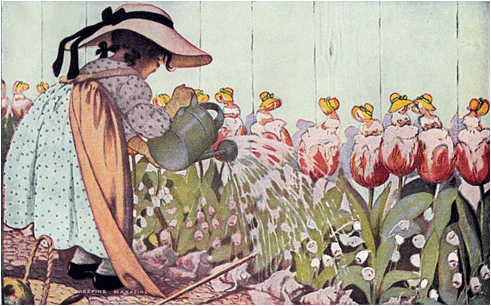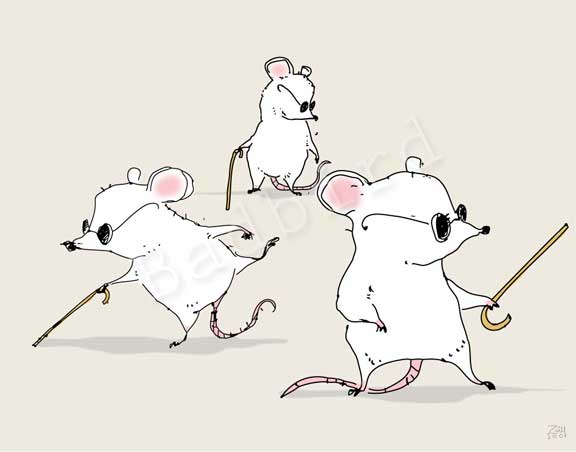Mary, Mary, Quite Contrary
Ho does your garden grow?
With silver bells, and cockle shells,
And pretty maids all in a row.

The Mary referred to in the poem, was actually Queen Mary, better known as Bloody Mary. She was a staunch Catholic, so the garden is an allusion to graveyards which were increasing in size with those who dared continue with the Protestant faith - the martyrs.
Silver bells and cockle shells, are colloquialisms for instruments of torture. ("Silver bells" were thumbscrew which crushed the thumb)
Then, the "maids" was a device to behead people, called The Maiden. It was a guillotine, and was new at the time.
Three blind mice, three blind mice,
See how they run, see how they run,
They all ran after the farmer's wife,
Who cut off their tails with a carving knife,
Did you ever see such a thing in your life,
As three blind mice?

The three blind mice were actually Protestant bishops. And the farmer's wife was..... Bloody Mary!!! (yay.) "Farmer's wife" was also a reference to the massive estates Mary and her husband owned. The three protestant bishops, Ridley, Latimer, and Cranmer, were convicted of plotting against the queen. Some stories say they were blinded, but most say they were burned to the stake, instead of dismembered as the poem runs.
Baa baa black sheep, have you any wool?
Yes sir, yes sir, three bags full!
One for the master, one for the dame,
And one for the little boy, who lives down the lane.

There was and educational reason behind this poem. It was to associate wool and wool products with the animal who produced it. And to associate the sound it would make.
For the historical part, some say the master was the Plantagenet King Edward I, and the export tax which was imposed, to where the king would collect tax on all exports of wool in the whole country.
Another idea is relating to King Edward II. The best wool in Europe was produced in England, but cloth workers from Flanders, Bruges, etc, were better skilled in dying and fulling. The king encouraged Flemmish weavers and cloth dyers to improve the quality of the final product.
Although some of them make sense, others are just plain weird in their meanings. These are just some in the world of "Nursery rhymes that mean weird things."
2 comments:
Thank you for the enlightenment, Shell. ;) I find it so amusing/horrific/fascinating. =P
That is definitely a new twist to my opinion on nursery ryhmes. Rather shocking that something I always thought of as meaningless. Actually has quite a significant meaning.
Post a Comment